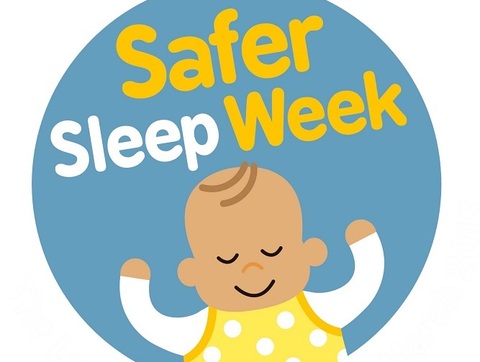 Between 2005 and 2014, Sudden Infant Death Syndrome (SIDS) claimed the lives of 266 babies in the Yorkshire and Humber regions.
Between 2005 and 2014, Sudden Infant Death Syndrome (SIDS) claimed the lives of 266 babies in the Yorkshire and Humber regions.
Health professionals in Hull are urging parents to make themselves aware of safe sleeping practices.
This statistic is published as part of Safer Sleeping Week (13 – 19 March), an initiative from the national charity, the Lullaby Trust.
During Safer Sleeping Week NHS Hull Clinical Commissioning Group (CCG) work closely with City Health Care Partnership (CHCP), Public Health and other local partners to help parents understand how to keep their babies safer while they sleep.
Sudden Infant Death Syndrome (SIDS) is the sudden and unexplained death of a baby where no cause is found. However, there are steps parents can take to help reduce the chance of this tragedy occurring.
The East Riding and Hull safe sleeping steering group advises parents that the safest place for their baby to sleep is a crib or cot in a room with them for the first six months.
Things you can do to help reduce the chance of SIDS:
breastfeed your baby
never sleep on a sofa or in an armchair with your baby
not sleep in the same bed as your baby if you smoke, drink, take drugs or are extremely tired, or if the baby was premature or of low birth weight
avoid letting the baby get too hot (room temperature should be 16-20?C)
not cover the baby’s face or head while sleeping, use light bedding.
keep your baby smoke free during pregnancy and after birth.
avoid having additional items in the cot, such as soft toys, pillows, etc.
This year CCG and CHCP staff are keen to highlight that new laws have come into effect.
The Serious Crime Act 2015, section 66, now states that parents can be prosecuted if they are under the influence of alcohol or drugs and suffocation of a child occurs. Local health visitors are making parents aware of this.
Sarah Smyth, Director of Quality and Clinical Governance/Executive Nurse with the CCG, said:
SIDS or cot death can be devastating , however, there are simple steps all parents can take to help to keep their new baby safer. Take a second look at your baby’s sleeping arrangements, particularly if someone unfamiliar is putting them to bed like a babysitter or relative. Avoid loose bedding or soft toys and don’t let them get too hot.
“Don’t sleep in the same bed as your baby if you smoke, drink or take drugs. New laws mean that you can be prosecuted if under the influence and suffocation of a baby occurs. We also advise against sleeping in the same bed as your baby if you are extremely tired, if your baby was born prematurely or was of low birth-weight”
Debbie Jackson, infant feeding co-ordinator for CHCP, said:
“Parents can get advice from many different places. Health visitors, midwives or children’s centre workers can all help or discuss any concerns they may have.”
Debbie went on to emphasise that breastfeeding can also play a big part in protecting babies from sudden infant death.
“Studies have shown that breastfeeding is beneficial for babies and for mothers in lots of ways, but that its role in preventing sudden infant death is particularly important. Research shows that breastfeeding reduces the risk of sudden infant death by as much as 50%.”
Cllr Gwen Lunn, portfolio holder for public health, said:
“New and expectant parents should take a few minutes to make sure they’re aware of the advice on putting a baby to sleep safely. Following guidance around safe sleep can save your baby’s life and the tips are all very simple things that every parent can do. Whenever SIDS occurs it’s a tragedy, but these simple steps can help to reduce the risk”.
The infant sleep information service www.isisonline.org.uk/about/ is a valuable source of information, with a free infant sleep app for parents that includes a bed-sharing decision tool guide. It also and explains when bed-sharing may be inadvisable and why.
For more information on safer sleeping, visit the Lullaby Trust website at www.lullabytrust.org.uk.
To find out more about CHCP CIC’s infant feeding service, go to www.chcpchildservices.org.uk/pages/infant-feeding-co-ordinator

